 W
WMasaru Emoto was a Japanese businessman, author and pseudo-scientist who claimed that human consciousness could affect the molecular structure of water. His 2004 book The Hidden Messages in Water was a New York Times best seller. His conjecture evolved over the years, and his early work revolved around pseudo-scientific hypotheses that water could react to positive thoughts and words and that polluted water could be cleaned through prayer and positive visualization.
 W
WTatsuji Fuse was a Japanese lawyer and social activist. Fuse was posthumously awarded the Order of Merit for National Foundation in 2004 by the South Korean government for his efforts for Korean independence movement.
 W
WMasao Haji was a Japanese political activist, mathematics lecturer and critic. He also wrote books under the name Ryūsuke Nomi . He was chair of mathematics at the correspondence-course "Z-kai", and taught at the three top exam preparation schools (juku): Yoyogi Seminar, Sundai Preparatory School and Kawai Juku Groupwork.
 W
WNaoki Hyakuta is a Japanese novelist and television producer. He is known for his right-wing political views and denying Japanese war crimes prior to and during World War II. He is particularly known for his 2006 novel The Eternal Zero, which became a popular 2013 film, his controversial period as a governor of government broadcaster NHK, as well as his support of Nanjing Massacre denial.
 W
WNisshō Inoue was a radical Buddhist preacher of Nichirenism who founded the interwar Japanese far-right militant organization Ketsumeidan . Contrary to popular belief, he was never an ordained Nichiren priest, but was rather a self-styled preacher whose extremist tenets were widely denounced by Japan’s mainline Nichiren Buddhist establishment of the time.
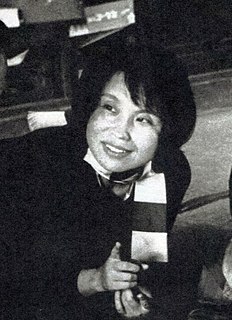 W
WMichiko Ishimure was a Japanese writer and activist.
 W
WJoichi "Joi" Ito is a Japanese entrepreneur and venture capitalist. He is a former director of the MIT Media Lab, former professor of the practice of media arts and sciences at MIT, and a former visiting professor of practice at the Harvard Law School. Following the exposure of his personal and professional financial ties to sex offender and financier Jeffrey Epstein, Ito resigned from his roles at MIT, Harvard, the John D. and Catherine T. MacArthur Foundation, the Knight Foundation, PureTech Health, and The New York Times Company on September 7, 2019.
 W
WJahana Noboru was an official in the government of Japan's Okinawa Prefecture, and an Okinawan rights activist, in connection with the Freedom and People's Rights Movement .
 W
WTano Jōdai (上代たの) was a professor of English literature, peace activist, and the sixth president of the Japan Women's University.
Toyohiko Kagawa was a Japanese Protestant Christian pacifist, Christian reformer, and labour activist. Kagawa wrote, spoke, and worked at length on ways to employ Christian principles in the ordering of society and in cooperatives. His vocation to help the poor led him to live among them. He advocated for women's suffrage and promoted a peaceful foreign policy.
 W
WTakeshi Kaikō was a prominent post-World War II Japanese novelist, short-story writer, essayist, literary critic, and television documentary writer. He was distinguished by his knowledge, intellect, sense of humor and conversational skills, and although his style has been criticized as wordy and obtuse, he was one of the more popular Japanese writers in the late Shōwa period.
 W
WMichiko Kanba was a Japanese communist, University of Tokyo undergraduate, and a Zengakuren activist. She died in clashes between demonstrators and police at the South Gate of the National Diet Building in central Tokyo at the climax of the 1960 Anpo Protests against the US-Japan Security Treaty. She is buried in Tama Cemetery in Tokyo.
 W
WShidzue Katō , also published as Shidzue Ishimoto, was a 20th-century Japanese feminist and one of the first women elected to the Diet of Japan, best known as a pioneer in the birth control movement.
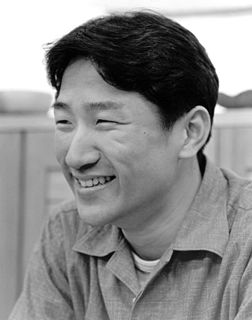 W
WRyūhei Kawada is a Japanese activist, haemophiliac and member of the House of Councillors (Japan). Ryūhei Kawada became famous for coming out as HIV positive in Japan, where doing so was considered taboo by many.
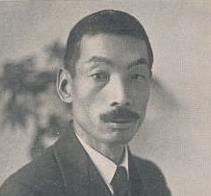 W
WHajime Kawakami was a Japanese Marxist economist of the Taishō and early Shōwa periods.
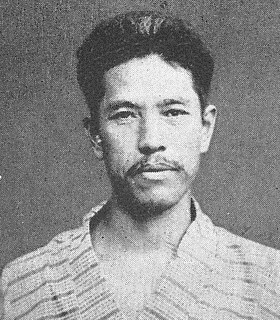 W
WKōzaburō Tachibana was a Japanese political activist and ultra-nationalist.
 W
WYukio Mishima , born Kimitake Hiraoka , was a Japanese author, poet, playwright, actor, model, Shintoist, nationalist, and founder of the Tatenokai , an unarmed civilian militia. Mishima is considered one of the most important Japanese authors of the 20th century. He was considered for the Nobel Prize in Literature in 1968, but the award went to his countryman and benefactor Yasunari Kawabata. His works include the novels Confessions of a Mask and The Temple of the Golden Pavilion , and the autobiographical essay Sun and Steel . Mishima's work is characterized by "its luxurious vocabulary and decadent metaphors, its fusion of traditional Japanese and modern Western literary styles, and its obsessive assertions of the unity of beauty, eroticism and death".
 W
WHiroko Nagata , sometimes mistakenly referred to as Yōko Nagata, was a Japanese leftist revolutionary and terrorist who was convicted of murder and sentenced to death. She was convicted of murdering, or participating in the murders of, fellow members of the United Red Army (URA) during a group purge in Gunma Prefecture in February 1972.
 W
WMasakazu Nakai was a Japanese aesthetician, film theorist, librarian, and social activist.
 W
WOda Makoto was a Japanese novelist, peace activist, academic and Time Asian Hero.
 W
WŌishi Matashichi (大石又七) was a Japanese anti-nuclear activist and author, and was a fisherman exposed to the radioactive fallout of the Bravo Nuclear Test in the Marshall Islands on March 1, 1954. He was one of twenty-three fisherman on the vessel Daigo Fukuryū Maru. Their catch of tuna and shark was also found to be contaminated with radiation, resulting in two tons of tuna buried at Tsukiji fish market instead of being sold. Members of the crew suffered from acute radiation syndrome, with Kuboyama Aikichi dying of a related infection six months later. Ōishi was hospitalized for several months. He quit the fishing industry and moved to Tokyo to open a laundromat, which he ran for fifty years. His first child was stillborn and he later developed liver cancer.
 W
WMakoto Sakurai is the pen name of a political activist, blogger, and writer from Kitakyushu in Fukuoka Prefecture, Japan. A former civil servant in a ward office, he is the founder and former leader of the group Zaitokukai, known for its anti-foreign messages and public demonstrations which some consider unruly. Following his unsuccessful campaign in the 2016 Tokyo gubernatorial election, he founded the Japan First Party in August 2016 and is currently the party's leader.
 W
WRyōichi Sasakawa was a Japanese suspected war criminal, businessman, far-right politician, and philanthropist. He was born in Minoh, Osaka. In the 1930s and during the Second World War he was active both in finance and in politics, actively supporting the Japanese war effort including raising his own paramilitary units. He was elected to the Japanese parliament during the war. After Japan's defeat he was imprisoned for a time, accused of war crimes, and then found financial success in various business ventures, including motorboat racing and ship building. He supported anticommunist activities, including the World Anti-Communist League. In 1951 he helped found the Nippon Foundation and became its first president. The foundation has done charitable work around the world, for which it and Sasakawa have received many official honors.
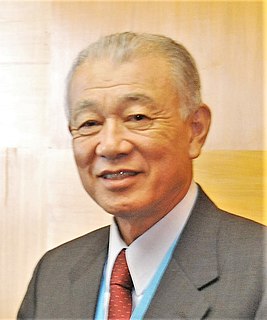 W
WYōhei Sasakawa is chairman of The Nippon Foundation, the World Health Organization Goodwill Ambassador for Leprosy Elimination, and Japan's Ambassador for the Human Rights of People Affected by leprosy. His global fight against leprosy and its accompanying stigma and social discrimination is an issue to which he has remained highly committed for more than 40 years. As chairman of The Nippon Foundation, Japan's largest charitable foundation, he is seen as a pioneer in guiding public-interest activities by the private in modern Japan. Sasakawa received his degree from Meiji University’s School of Political Science and Economics. Sasakawa's father was businessman, politician, and philanthropist Ryōichi Sasakawa.
 W
WYoshiko Shimada is a Japanese printmaker and performance artist who has been referred to as "Japan’s premier feminist and antiwar artist."
 W
WYūne Sugihara , born Yasuhiro Sugihara , better known by his stage name Sugizo, is a Japanese musician, singer-songwriter, composer and record producer. He is the lead guitarist and violinist of the rock band Luna Sea since 1989.
 W
WTakashi Tachibana is a social activist, journalist, accountant and politician who is the founder and leader of The Party to Protect the People from NHK . A former assemblyman for the Funabashi City Assembly and the Katsushika Ward Assembly, he was elected to the House of Councillors in the July 2019 regular election on his party's proportional representation list. He automatically forfeited his seat on 10 October when he officially became a candidate in the October 2019 by-election to the House of Councillors for a majoritarian seat in Saitama.
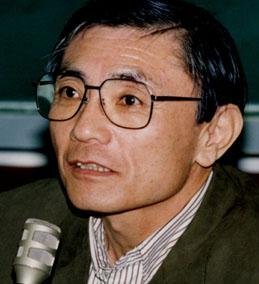 W
WJinzaburo Takagi was a Japanese assistant professor in nuclear chemistry. He wrote several books on environment protection, and on the threat of nuclear waste. He was given the Yoko Tada Human Rights Award in 1992, and the Ihatobe Award in 1994. He was awarded the Right Livelihood Award in 1997, jointly with Mycle Schneider.
 W
WTakano Iwasaburo was a Japanese social statistician and labor activist.
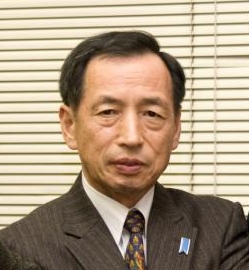 W
WGeneral Toshio Tamogami is a Japanese Air Self-Defense Force career military officer. He served as the Chief of Staff of Japan's Air Self-Defense Force from March 2007 until October 2008. Tamogami turned to politics in 2014 as a candidate for governor of Tokyo and for the House of Representatives; he was arrested in April 2016 for alleged violations of campaign finance laws in relation to his gubernatorial campaign.
 W
WYuko Tojo was a Japanese ultra-nationalist politician, Imperial Japanese apologist, and brief political hopeful. She was the granddaughter of General Hideki Tōjō, the Japanese wartime prime minister who was convicted as a Class A war criminal and hanged after World War II in 1948.
 W
WShiba Shirō (柴四郎), better known for his pen name Tōkai Sanshi, was a famous political activist and novelist during the Meiji period. He was born into a samurai family and fought for domain of Aizu during the Boshin War from 1868 to 1869, after which the Aizu domain was abandoned. He was educated at different facilities in Japan and in the United States, and he served in the military during the First Sino-Japanese War and Russo-Japanese War. His major works include Strange Encounters with Beautiful Women, first serialized in 1885 and concluded in 1897.
 W
WKiyomi Tsujimoto is a Japanese politician from the Constitutional Democratic Party of Japan, and formerly other incarnations of Japanese center-left and social democratic parties. She is a member of the House of Representatives from the 10th District of Osaka. Tsujimoto is also the current policy chief of the CDP.
 W
WYukinori Yanagi is a contemporary Japanese artist.
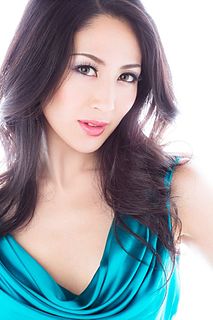 W
WIkumi Yoshimatsu is a Japanese actress, stunt woman, book author, opinion leader, social activist and beauty queen who was crowned Miss International 2012 in Okinawa. It was Japan's first Miss International win in the 52-year history of the pageant.